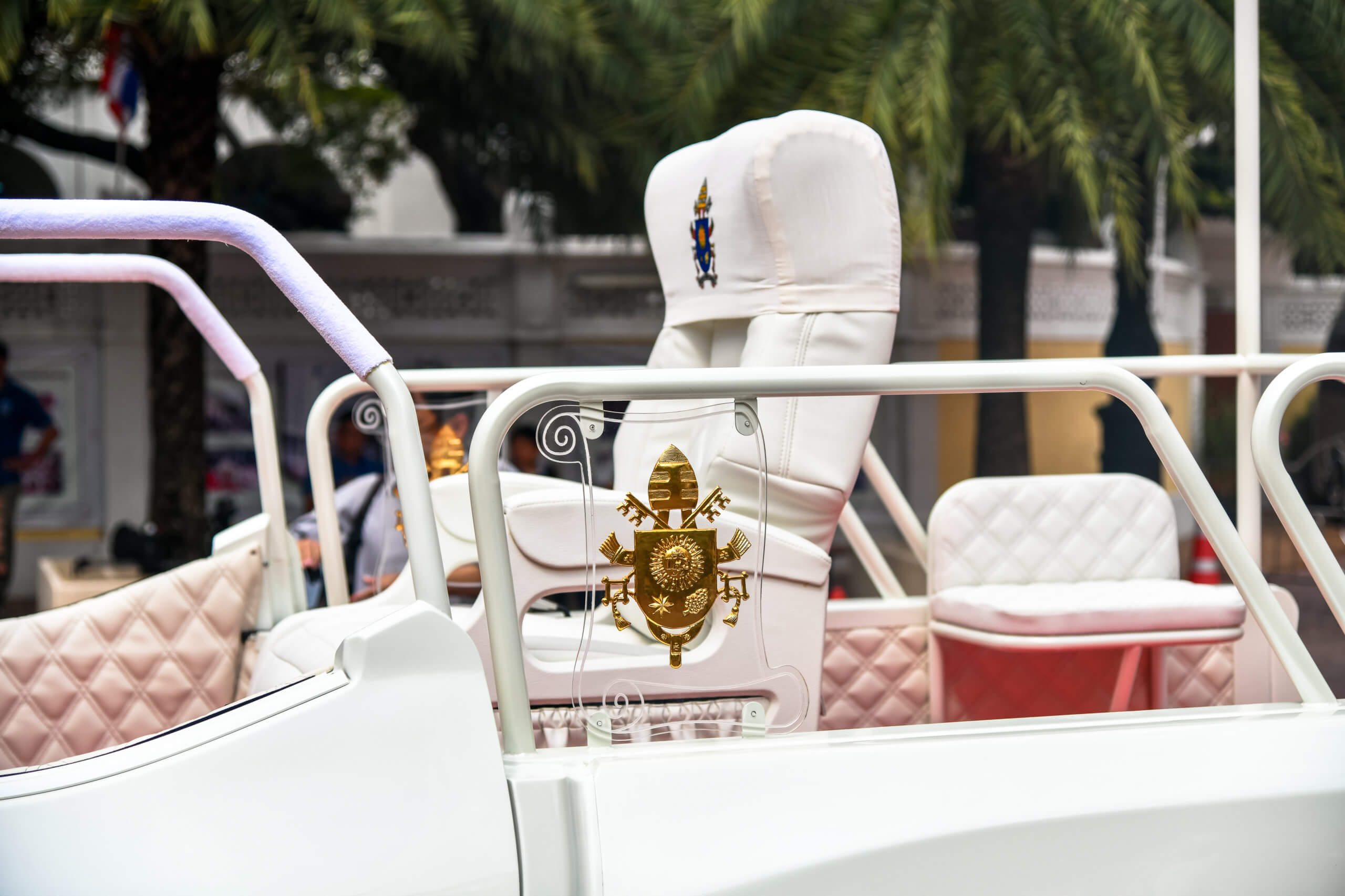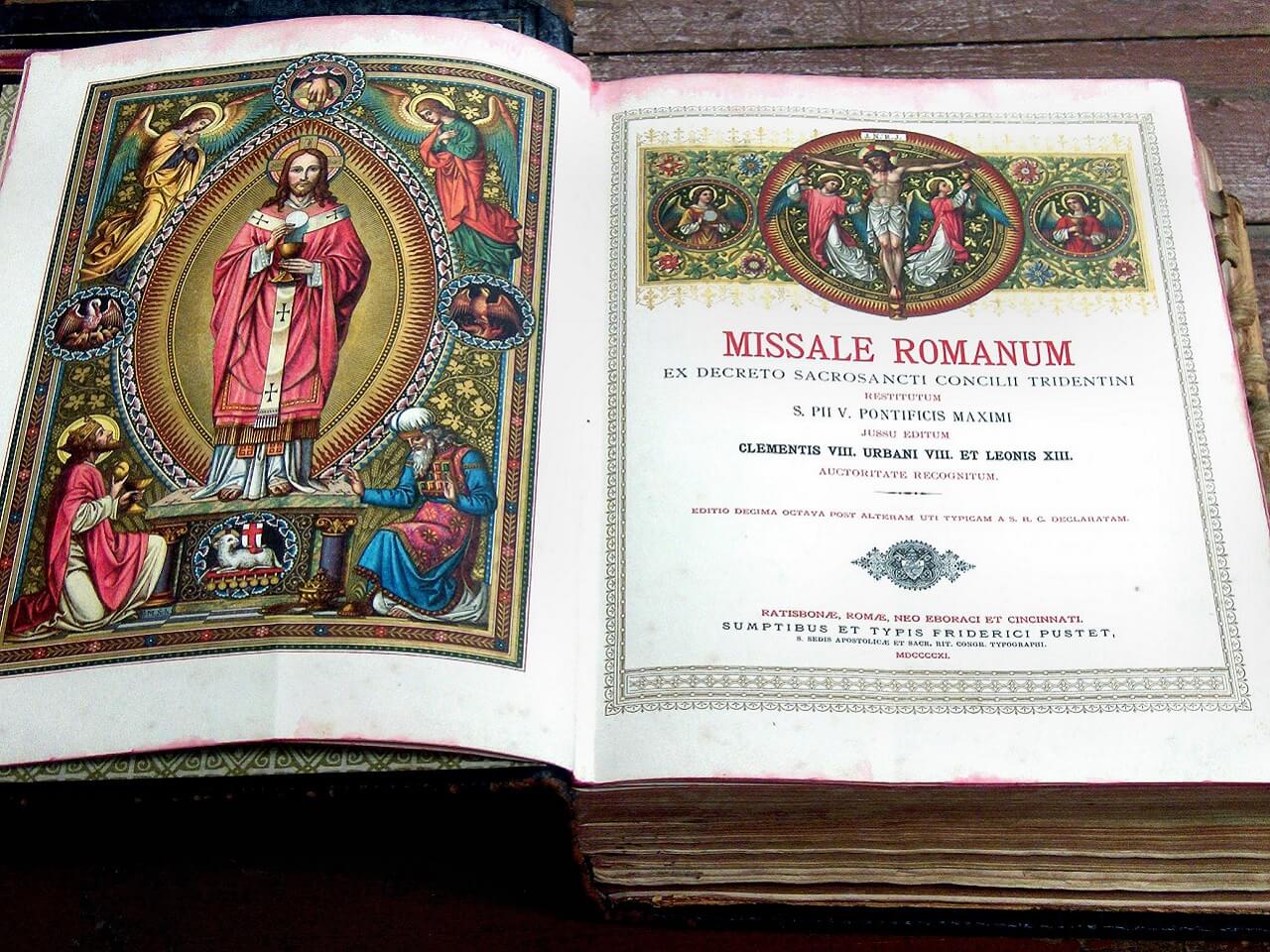Pope weighs his words carefully before visiting one of Europe’s most secular and ‘progressive’ countries
Pope Francis is preparing to travel to Luxembourg and Belgium this week despite a mild cold. His trip is set to feature several important underlying themes as he sets foot in one of Europe’s most secular nations and prepares to deliver messages to a continent marred by war. The Pope’s 26-29 September visit to Luxembourg The post Pope weighs his words carefully before visiting one of Europe’s most secular and ‘progressive’ countries appeared first on Catholic Herald.

Pope Francis is preparing to travel to Luxembourg and Belgium this week despite a mild cold. His trip is set to feature several important underlying themes as he sets foot in one of Europe’s most secular nations and prepares to deliver messages to a continent marred by war.
The Pope’s 26-29 September visit to Luxembourg and Belgium will mark his 46th international trip as pope, with a total of 77 countries visited since his election to the papacy in 2013. But his visit to Belgium could be one of his most challenging yet. Once one of Europe’s most Catholic nations, Belgium is now one of the continent’s most progressive bastions for modern secularism.
Though the Pope is primarily making the voyage for the 600th anniversary of the founding of the Universities of Leuven and Louvain, given the presence of important EU institutions in both places, as well as recent abuse scandals that have undermined the Church in an already tenuous landscape given the rapid growth of secularism, all of these themes are expected to be present at some level in what the Pope says and does.
Speaking to journalists during a 23 September press briefing about the trip, Vatican spokesman Matteo Bruni said: “Secularisation is an issue, but more so perhaps is the challenge of Christian witness in a Europe where Christianity is less known than in the past, full of questions, many unexpressed, with a perception of decline.”
He added: “There are already attempts to respond to these matters within these communities that will be encouraged by the Pope.”
While some 57 per cent of Belgium’s population is Catholic, the rate of active participation in Sunday Mass is estimated to be as low as 6-10 per cent.
RELATED: Pope Francis faces a tough audience in Belgium – it could be his most daunting trip yet
The Church in Belgium also faces significant social challenges, as the country was the second in the world to legalise same-sex marriage in 2003, and it has become a global destination for those seeking euthanasia – this was legalised in Belgium in 2002 and allows foreigners to submit a request to end their lives in the country.
Belgium is also one of very few countries where euthanasia is available for those with “unbearable suffering” caused by a psychiatric disorder or dementia. Belgium became the first country to legalise euthanasia for children in 2014 with no minimum age requirement, but with stipulations for written consent from the parents.
According to Bruni, in addition to the message Pope Francis will offer to a secularised society, he will also carry a message to countries that host “the headquarters of various European institutions, especially of a financial nature”, a reference to the global fund industry in Luxembourg, and to “the seat of a large part of the EU administration” with Belgium home to the headquarters of the European Commission.
These countries are “a part of the world that others look to”, Bruni explained, hence the Pope’s words will be “spoken to the heart of Europe” in light of “the role it wants to play in the world in the near future.”
To this end, he pointed to the Pope’s previous speeches to the EU during his 2014 visit to Strasbourg, when Francis famously called Europe a “grandmother” that has lost its vibrancy and creativity; as well as his speech of acceptance for the Charlemagne Prize in 2016, where he reiterated that comparison, saying Europe has become “weary” and “entrenched” and has lost contact with its Christian roots and its founding principles.
Bruni said the Pope’s message will likely focus on the role Europe can play going forward in becoming a place of welcome and solidarity between all nations, and noted that some nations have become “victims” of occupation and destruction.
As a result, Bruni said the topic of peace will also likely be a key underlying theme of the trip, as Francis will be visiting places that worked hard to achieve peace following the Second World War at a time when the European continent is again marred by the violent conflict in Ukraine.
Pope Francis is also expected to address environmental issues and migration, as well as the role of Catholic education in an era of rapid technological growth.
During a meeting with professors at the Catholic University of Louvain, the Pope will show a video on humanitarian assistance to refugees, which Bruni said was a timely message for Belgium given the challenge of migration in recent years and the presence of refugees in university institutions.
The Pope’s meetings with the world of academia, Bruni said, will also give him an opportunity to deliver a message on “what Christianity still has to say to European culture”.
There is also a strong connection between the Catholic University of Louvain and the Second Vatican Council, as even before the council began the university was seen as a forerunner of the empowerment of the laity by virtue of their baptism and their training as theologians.
In 1970, the university established the Centre for the Study of the Second Vatican Council, which still operates today with the aim of collecting materials documenting the history of the Council and advancing and support ongoing research of it.
Likewise, the Catholic University of Leuven holds longstanding close ties to the liberation theology movement that has become popular throughout much of Latin America. It still has a Center for Liberation Theologies which serves as “a platform for theological research in liberative, contextual, critical theologies” through the organisation of roundtables, discussion groups, lectures, workshops and seminars.
Another topic that will underlie the Pope’s visit to Belgium is clerical abuse and the recent scandals that have hit the country, including the notorious case of Bishop Roger Vangheluwe, who was laicized by the Vatican in March. After charges first surfaced in 2010, Vangheluwe eventually admitted to several acts of sexual abuse, including some against his own nephews.
Francis is expected to meet with 15 survivors of sexual abuse while in Belgium – six men and nine women – for an encounter the details of which have not yet been announced in order to ensure the privacy of participants.
Bruni told journalists on 23 September that, as is usual practice, they will announce on the meeting after it has occurred and “in agreement with the victims, we will provide information on it later”.
On the charges against Vangheluwe and in terms of the impact the scandal surrounding him has had on Belgian society, Bruni said Pope Francis “is aware of the pain, drama, and suffering in Belgium, and we can certainly expect references to this”.
Pope Francis will be joined on his visit by Cardinal Robert Francis Prevost, Prefect of the Dicastery for Bishops, and by Cardinal Marcello Semeraro, Prefect of the Dicastery for the Causes of Saints.
Vatican Secretary of State Cardinal Pietro Parolin will not join him on the trip, as Parolin will instead be in New York representing the Holy See at the 79th UN General Assembly.
RELATED: Critics who paint the Pope as a ‘meek’ peacenik over Ukraine fail to see how victory can lie in unexpected places
Photo: Pope Francis speaks during a weekly general audience at St Peter’s square in the Vatican, Vatican City State, 25 September 2024. (Photo by TIZIANA FABI/AFP via Getty Images.)
![]()
The post Pope weighs his words carefully before visiting one of Europe’s most secular and ‘progressive’ countries appeared first on Catholic Herald.














